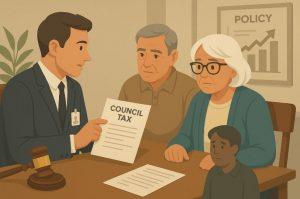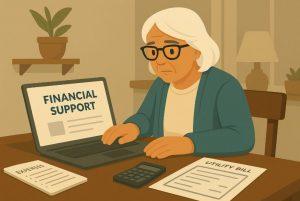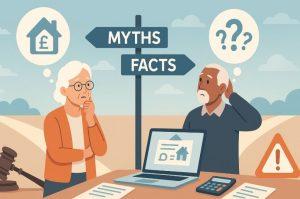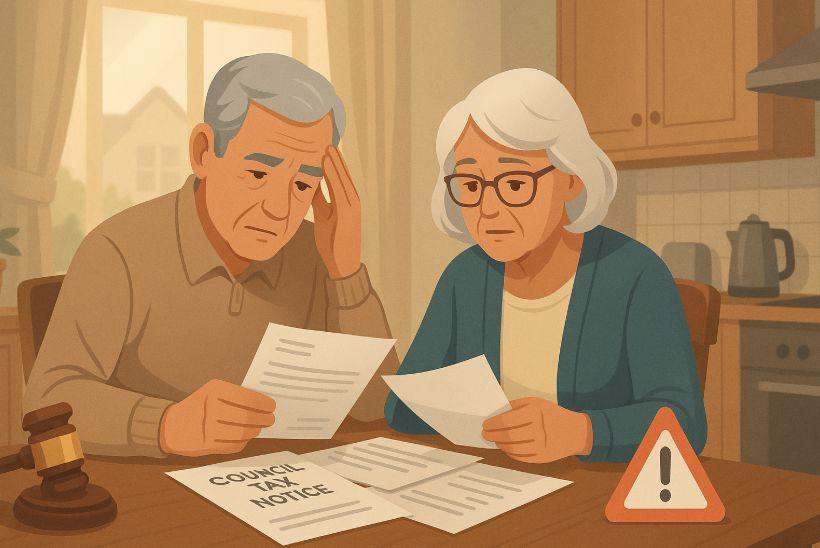Council tax is a significant expense for many UK residents, including those who are retired. For pensioners, navigating the complex rules surrounding council tax liabilities can be confusing.
While pensioners are generally required to pay council tax like any other adult, there are several schemes and exemptions that may reduce or even eliminate this obligation depending on individual circumstances. From means-tested reductions to property-related discounts, the system provides targeted support for older adults on limited incomes.
This comprehensive guide explores the criteria, options, and processes involved in determining whether pensioners pay council tax, what support is available, and how one can access it in London and throughout the UK.
Are Pensioners Legally Required to Pay Council Tax in the UK?

Yes, pensioners are legally required to pay council tax unless they qualify for a discount or exemption. Age alone does not automatically entitle someone to reduced council tax, but income, savings, and living arrangements can significantly influence what one is required to pay.
The core framework for council tax is set by the UK government but administered locally. This means that eligibility criteria and reduction schemes may differ slightly between councils, though the rules for pension-age individuals are more standardised compared to those for working-age people.
What Council Tax Reductions Are Available for Pension-Age Individuals?
The main source of support for pensioners struggling with council tax is the Council Tax Reduction (CTR) scheme, also known as Council Tax Support. This benefit helps low-income individuals reduce their annual council tax bill.
Council Tax Reduction Explained
CTR is a means-tested benefit available to pensioners who are either on a low income or receiving certain types of benefits. Pensioners have access to a nationally standardised CTR scheme, which is typically more generous than those available to working-age people.
Eligibility Conditions
To qualify for Council Tax Reduction as a pensioner, you must:
- Have reached State Pension age
- Have low income and less than £16,000 in savings
- Not be receiving Universal Credit
How Does Receiving Pension Credit Affect Council Tax Payments?
Receiving Pension Credit, particularly the Guarantee Credit element, can have a major impact on your council tax liability.
Guarantee Credit vs. Savings Credit
- Receiving the Guarantee Credit portion of Pension Credit often qualifies you for a full exemption from paying council tax.
- Savings Credit: May still entitle you to some reduction, depending on income and local council rules.
Pensioners who receive Guarantee Credit often receive automatic maximum CTR without needing to provide further financial details.
Can Low-Income Pensioners Claim a Council Tax Discount?

Yes, pensioners who are not on Pension Credit but still have a low income may qualify for partial CTR.
Local Variations in Scheme
While the scheme for pensioners is broadly national, some councils may vary in how they assess income and savings. Pensioners are generally assessed more favourably, with higher disregard allowances for savings and income. Applications must be made to your local council, which will consider:
- Total household income
- Number of people living in the property
- Existing benefits
- Housing tenure (owned, rented, etc.)
What Additional Council Tax Discounts Can Pensioners Apply For?
Beyond CTR, there are several statutory discounts available that can help pensioners reduce their council tax bills.
Single Person Discount
If a pensioner lives alone, they can claim a 25% discount, regardless of their income or savings.
Carer Discount
A live-in carer who provides a minimum of 35 hours of care each week and meets the eligibility rules may not be counted for council tax, which can lead to reduced charges for the home.
Disabled Band Reduction Scheme
If the pensioner’s home has been adapted for someone with a disability, the household may qualify for a band reduction, even if they live in the lowest council tax band (Band A). The property must contain one or more of the following:
- A room for a disabled person
- A second bathroom or kitchen
- Extra space for wheelchair access indoors
Are There Council Tax Exemptions for Severe Mental Impairment (SMI)?
Yes. Individuals diagnosed with a severe mental impairment (SMI) may be completely disregarded for council tax purposes.
Qualifying for SMI Exemption
To qualify, the individual must:
- Have a medically certified condition such as Alzheimer’s, Parkinson’s, or dementia
- Eligibility often depends on whether the person is receiving approved disability benefits such as Personal Independence Payment (PIP) or Attendance Allowance.
- Be certified by a doctor
A pensioner who lives alone and has been diagnosed with a qualifying severe mental health condition may be entitled to a complete exemption from council tax.
Do Disability Adaptations in a Property Lower Council Tax?

Homes that have undergone adaptations to meet the needs of a disabled resident may be eligible for a reduced council tax band.
How the Band Reduction Works?
Here’s how this reduction works in practice:
Current Band |
With Disability Adaptation |
New Band Payable |
| B | Yes | A |
| C | Yes | B |
| A | Yes | Remains A, but receives financial relief |
Properties in Band A can’t go lower, but the council will apply a financial equivalent of a band reduction.
How Does Having an Annexe or a Live-in Carer Affect Council Tax Bills?
Annexe Discounts
If a pensioner has a self-contained annexe used by a dependent relative (over 65 or disabled), they may be eligible for a 50% discount or even full exemption depending on usage.
Live-in Carers
Carers who meet the following criteria are disregarded:
- Care for someone receiving certain disability benefits
- Provide care for 35+ hours per week
- Are not the spouse, partner, or child under 18 of the person they care for
If carers are disregarded, this could reduce the number of “counted adults,” thus reducing the council tax bill.
How Can Pensioners Apply for Council Tax Reduction or Exemption?
Applications must be submitted directly to your local council.
Application Steps:
- Visit your local council’s website or GOV.UK
- Use the council tax reduction application form
- Provide supporting documents such as:
- Benefit award letters
- Income statements
- Identification and proof of residency
- Await assessment and approval
Most councils also offer online benefits calculators to estimate eligibility before applying.
What Are the Most Common Misconceptions About Pensioners and Council Tax?

There are several widespread myths that can cause confusion:
Misconception 1: All pensioners get free council tax
Not true. Age alone does not grant full exemption. Your entitlement is determined by various factors, including your total household income, the benefits you receive, and who resides with you.
Misconception 2: You don’t need to apply for discounts
Even if you’re eligible, most discounts and exemptions require a formal application.
Misconception 3: Council tax rules are the same everywhere
While pensioner rules are national, local councils have discretion, particularly for working age applicants.
Where Can Pensioners Get Help With Council Tax Support in London?
Key Resources:
- GOV.UK: Provides general rules and eligibility calculators.
- Age UK: Offers support and advocacy for pensioners.
- Citizens Advice: Citizens Advice provides private guidance and can help you complete and submit your council tax support applications.
- Local Councils: Provide tailored CTR schemes and application forms specific to boroughs like Camden, Westminster, or Hackney.
Conclusion
While pensioners in the UK are generally responsible for paying council tax, there are numerous ways to reduce or even eliminate this cost through Council Tax Reduction schemes, statutory discounts, and exemptions.
Eligibility depends on various factors such as income level, benefit entitlement, property adaptations, and household composition. By understanding the rules and applying through the correct channels, pensioners can significantly ease their financial burden.
FAQs
Do all pensioners get a council tax reduction automatically?
No. Even if you’re eligible, you must apply through your local council to receive any discount.
Can a retired couple still qualify for a council tax discount?
Yes, especially if one of them qualifies for a disregard, such as SMI or being a live-in carer.
Does receiving State Pension alone qualify you for a discount?
No. You must meet the income and savings threshold to qualify for means-tested support.
Is there a way to calculate my council tax reduction before applying?
Yes. Most local councils and GOV.UK offer online benefits calculators to give you an estimate.
Can I get help if I have over £16,000 in savings?
Usually not. Most schemes cap eligibility at £16,000 in capital unless you’re receiving Guarantee Credit.
What if I think my council tax band is too high?
You can appeal to the Valuation Office Agency (VOA) for a reassessment, especially if your property has changed.
How long does it take for a Council Tax Reduction application to be processed?
Typically between 2–6 weeks, depending on your council. It’s advised to apply as early as possible.









Leave feedback about this